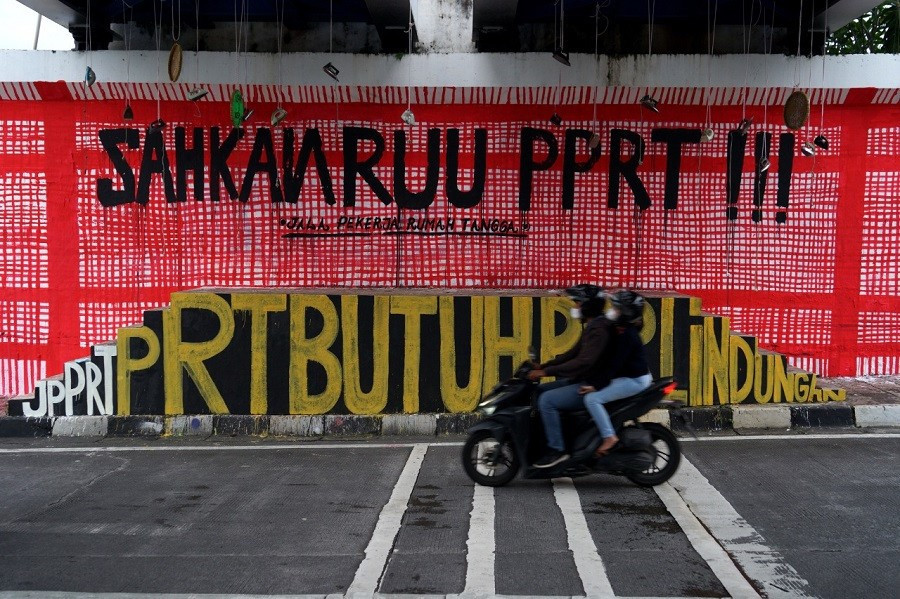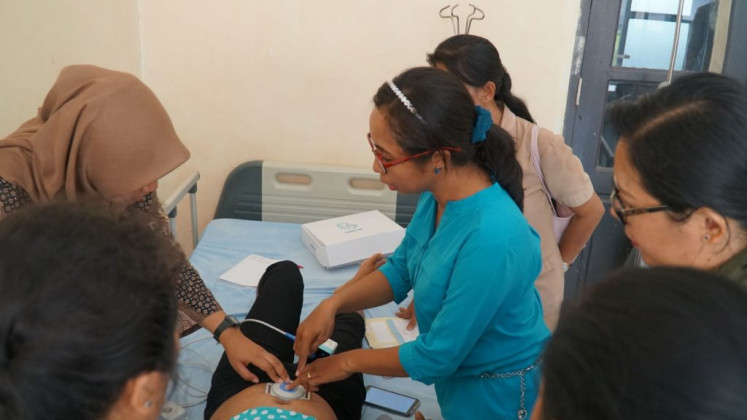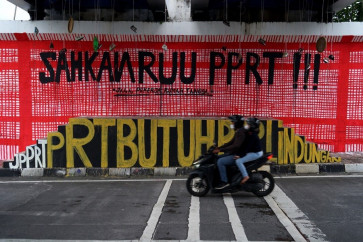Popular Reads
Top Results
Can't find what you're looking for?
View all search resultsPopular Reads
Top Results
Can't find what you're looking for?
View all search resultsAnalysis: Indonesians drag feet on improving lot of domestic workers
Change text size
Gift Premium Articles
to Anyone
W
hen President Joko “Jokowi” Widodo demanded that the House of Representatives complete deliberations on the domestic worker protection bill earlier this month, there were few takers. Political parties, which are gearing up for next year’s general election, are not interested. There was little enthusiasm from the public either. Only one labor union has openly come out in support of the president’s demand that the House expedite the legislation.
The draft bill has lingered in the House for nearly two decades. No House member or faction has taken any real interest in advancing it. This is not only because it is a not a hot-button political issue that could win them votes in elections, but it is also because politicians are most likely employing one or more domestic servants at home, as do many households in Indonesia. They are happy with the current arrangement, in which essentially no laws govern the employment of these workers. In some cases, it can amount to modern slavery, wherein the employers decide everything and the domestic workers are completely at their mercy.
The current draft of the bill demands legal recognition for these domestic servants as workers, entitling them to legal protection, just as any other worker. Without this legal recognition, the much touted and much debated Job Creation Law does not cover domestic workers. The domestic worker protection bill covers cooks, cleaners, baby-sitters, caregivers, gardeners, drivers and security guards.
In many households, a domestic worker likely combines many of these jobs into one. Typically, they work long hours and receive low wages. And some are subject to physical abuse. The National Advocacy Network for Domestic Workers (JALA PRT) says it received 3,255 complaints of violence against domestic workers from 2015 to 2022. The actual number could be many times this, as many cases are thought to go unreported.
The language surrounding domestic workers has transformed over time, from the former title of babu, now considered a denigrating term, to pekerja (worker). In the last decade, the language has changed to household assistant (ART). The nation seems willing to afford domestic workers some degree of respect in terms of language, but not in terms of legal recognition and protection.
The draft bill says that domestic workers and employers must enter into a contract in writing, setting out terms and conditions. These include salary and benefits, working hours, rest days and holidays, health care and other insurance benefits and education and training. It would also set the minimum age of workers at 18.
Not stipulated in the draft is the minimum wage, although this should follow from the Job Creation Law once domestic workers gain legal recognition. The lone labor group to vocally support the bill, the Federation for Muslim Workers in Transportation, Teaching and the Informal Sector (F-TPI Muslim), which is affiliated with the Nahdlatul Ulama (NU) Islamic organization, has demanded the inclusion of the minimum wage in the draft.



















